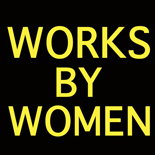Interview: Molly Hagan
 Women Center Stage concludes Saturday, April 2nd with The 20-Something Project with two very talented emerging writers, Molly Hagan (pictured left) and Chloe Carter Brown. I’ve had the good fortune to work with Molly on a wild monthly playwriting event, Madness, that Cecilia Copeland has brought from Ohio University to New York City. It’s easy to see why the Culture Project selected Molly to represent the 20-Somethings; she has a bright future ahead of her.
Women Center Stage concludes Saturday, April 2nd with The 20-Something Project with two very talented emerging writers, Molly Hagan (pictured left) and Chloe Carter Brown. I’ve had the good fortune to work with Molly on a wild monthly playwriting event, Madness, that Cecilia Copeland has brought from Ohio University to New York City. It’s easy to see why the Culture Project selected Molly to represent the 20-Somethings; she has a bright future ahead of her.
She agreed to answer a few questions for Works by Women.
1) What inspired you to become a playwright?
I went to Ohio University and found my way over to the theater department. I’ve never been a particularly good storyteller – like at parties, or what have you. I never could quite nail a punch line. I guess the inspiration part came when I realized that telling stories onstage often means something completely different.
2) Tell me about your play THE SWING OF THE SEA?
The Swing of the Sea is about grieving and the distortion of memory and fantasy after a person has died. It’s also about experiencing a first death – the characters are twelve and thirteen. In working on the play, I’ve tried to really focus on the logistics of theatricality. How can I create something from nothing? How is this story different because it is told onstage and not, say, on film?
3) What excites you about being a part of Women Center Stage?
Everything – there is such awesome talent in this festival. And I get to work with a wonderful team including Megan Carter from the Women’s Project. I wouldn’t have had the chance to work with her if not for this opportunity.
4) You and I just worked together on New York Madness, an off shoot of the popular short play festival at Ohio University. Now that you’re in New York, how do you continue to hone your playwriting skills?
Madness, actually. At OU, Madness is a lab production that goes up every week as part of a class. Writers have several days to create 5-7 minute pieces based on a given theme, and those pieces are performed for a packed house. Every week – prompt on Monday, show on Friday. Madness is part of the grad program, so I was never able to participate before NYC Madness. I’ve found it exhilarating and really, really hard. But the beauty of Madness is that it is completely reliant on structure. There’s no time for shenanigans – the piece has to function.
5) What advice do you think is crucial for a new playwright in New York?
As a new playwright in New York, I’ll just share the advice I try to follow: Don’t worry about seeing everything – sometimes you’ll be too poor, and food is more important. Never pay full price for Broadway. And read everything that has nothing to do with theater – don’t drown yourself in plays. The theater is a community, not a self-sustaining world.
6) What do you think is the greatest challenge facing female theater artists?
I’d like to say that the problem has to do with numbers, but I think that’s entering into the wrong conversation. I’d prefer to discuss the “how” and the “why” which I think has more to do with the content of the plays that do get produced. When a female character can be reduced to a dramaturgical device, or an entity upon which the themes of a play can be performed – – when rape becomes “symbolic,” as part of a larger “statement” – – then the number of women writing for the theater becomes just one part of a much, much larger problem. (These offenses occur with disturbing frequency and usually pass without comment with critics mumbling about the dark nature of humans – how misanthropic! Genius.). To be sure, I’m not just placing the blame on male playwrights. Misogyny in a man’s play will ruffle a few feathers, but misogyny in a woman’s play lends a subversive credibility. It can be perceived as edgy, even sexy.
I’d love to see a greater diversity of gender in the theater, but what I would love more is to see gender explored in more meaningful ways on the stage because I think that one problem is contingent upon the other.
7) What gives you hope for women in American theater?
Plays that deal with gender with intelligence and nuance like Annie Baker’s Body Awareness or Josh Conkel’s The Sluts of Sutton Drive.
The developmental readings of Molly Hagan’s The Swing of the Sea and Chloe Carter Brown’s Beautiful Somewhere are at 2:00 pm on Saturday, April 2nd at the Living Theatre (21 Clinton St., NYC). The readings are free, but reservations are required.
